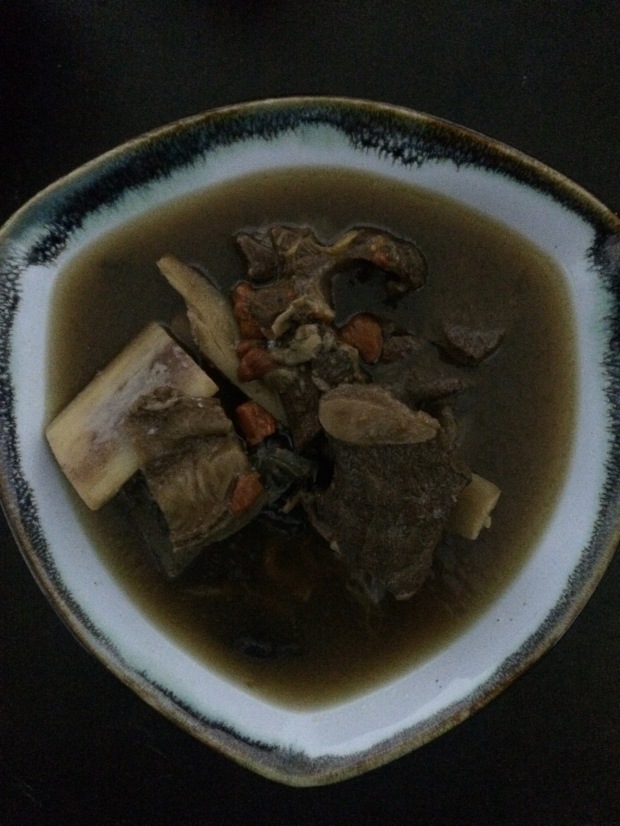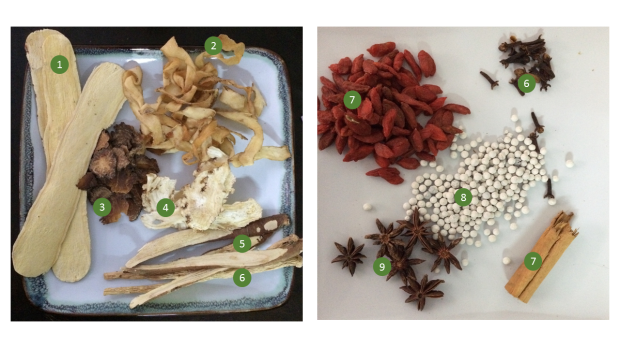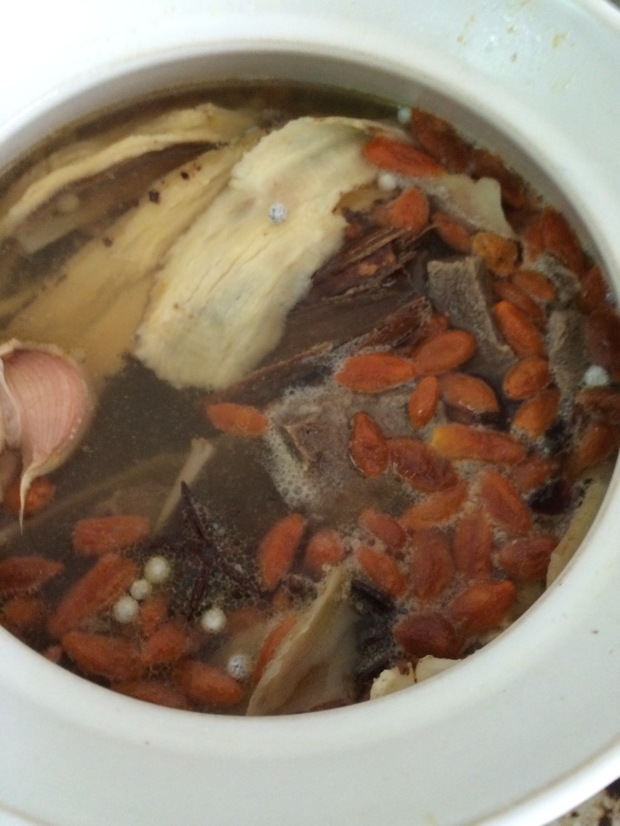
A warm bowl of Bak Kut Teh is as comforting as it can be
Bak Kut Teh is a comfort food among the Chinese community from where I am from. Literally means “meat bone tea”, Bak Kut Teh is usually a pork dish simmered in complex herbal and spice broth for hours to draw into the soup the goodness from the meat and bone.
This soup, introduced in Malaysia in the 19th century by Chinese coolies of Hokkien origin has a robust flavour and energy and immune system boosting properties.
Wanting to try something different this time, I have used mutton ribs in my soup instead of pork and guess what? It works! Turns out that the herbs and spices used in the soup are really good for masking the mutton smell. However, I realised that mutton ribs requires longer cooking time in order for the meat to turn really tender compared to pork. However, the effort is all worth it because the taste of herbal soup infused into tender and moist mutton meat is simply divine!
Here are the different Chinese herbs and spices that I used in the soup that not only elevate the flavour but also give the soup some kind of healing properties.

Chinese herbs and spices used in the Bak Kut Teh soup base that give it the robust flavour
- Wong Kei (Radix Astargali) – has therapeutic properties for the spleen and lungs
- Yu Zuk (Solomon Seal Roots)-has blood sugar controlling properties
- Chyun Gung (Szechuan Lovage Roots) – has properties to promote qi and blood circulation
- Dong Quai (Chinese Angelica Roots) – has properties to regulate menses and potentially anti-cancer
- Gam Cou (Licorice Roots) – has properties to tonify spleen and enhance qi and has potential to relief cough and get rid of phlegm
- Dong Sam (Codonopsis Roots)-has anti-fatigue properties and can potentially improve body functions
- Kei Ji (Goji berries) – has properties to improve and regulate immune system. Is potentially anti-aging and anti-cancer.
- White pepper
- Star anise
- Cloves
- the bottom right item labelled “7” by mistake is actually cinnamon stick
Rock sugar is usually added into the soup for added flavour. However, I have omitted that and reduced the usage of garlic and dark soy sauce to save myself some carbs.

Bak kut teh simmering on slow heat
Cooking time: 3.5 hours
Carb: 5.5g | Fiber: 1.3g | Nett carb: 4.4g| Protein: 39.4g
Ingredients (Serves 4)
- 800g mutton ribs/pork ribs
- 10g Wong Kei (Radix Astargali)
- 10g Yu Zuk (Solomon Seal Roots)
- 5g Chyun Gung (Szechuan Lovage Roots)
- 5g Dong Quai (Chinese Angelica Roots)
- 10g Gam Cou (Licorice Roots)
- 5g Dong Sam (Codonopsis Roots)
- 10g Kei Ji (Goji berries)
- 5g white pepper
- 2 star anise
- 3-4 cloves
- 1 inch cinnamon stick
- 10g garlic
- 1/2 teaspoon dark soy sauce
- 1 liter water
- Salt to taste
Method
- Wash and clean mutton/pork ribs
- Boil mutton/pork ribs for 5 minutes then discard water to get rid of blood and bone sediments then set aside to cool.
- Add partially cook ribs and the rest of the ingredients (except salt and Goji berries) into 1 litre room temperature water. Do not use hot water when adding ingredients to ensure that they will cook evenly and gradually
- Reduce flame to the lowest setting and simmer for 3 hours as overheating of meat protein can cause the soup to turn murky. Best to cook over slow heat over long period of time
- After three hours, add salt and goji berries into the concoction and simmer for another 30 minutes